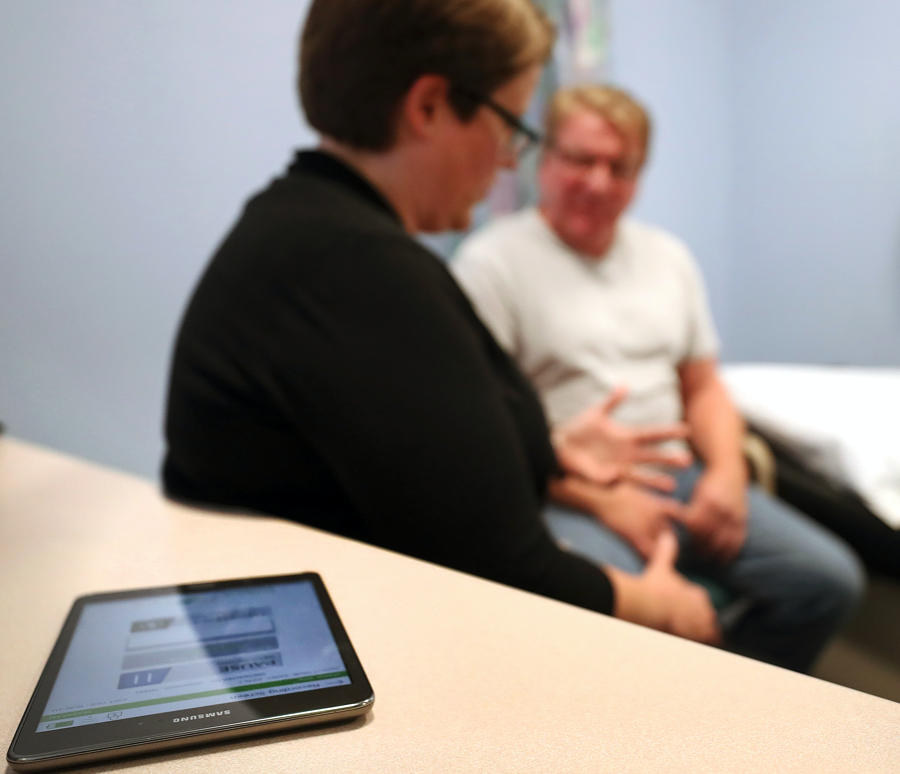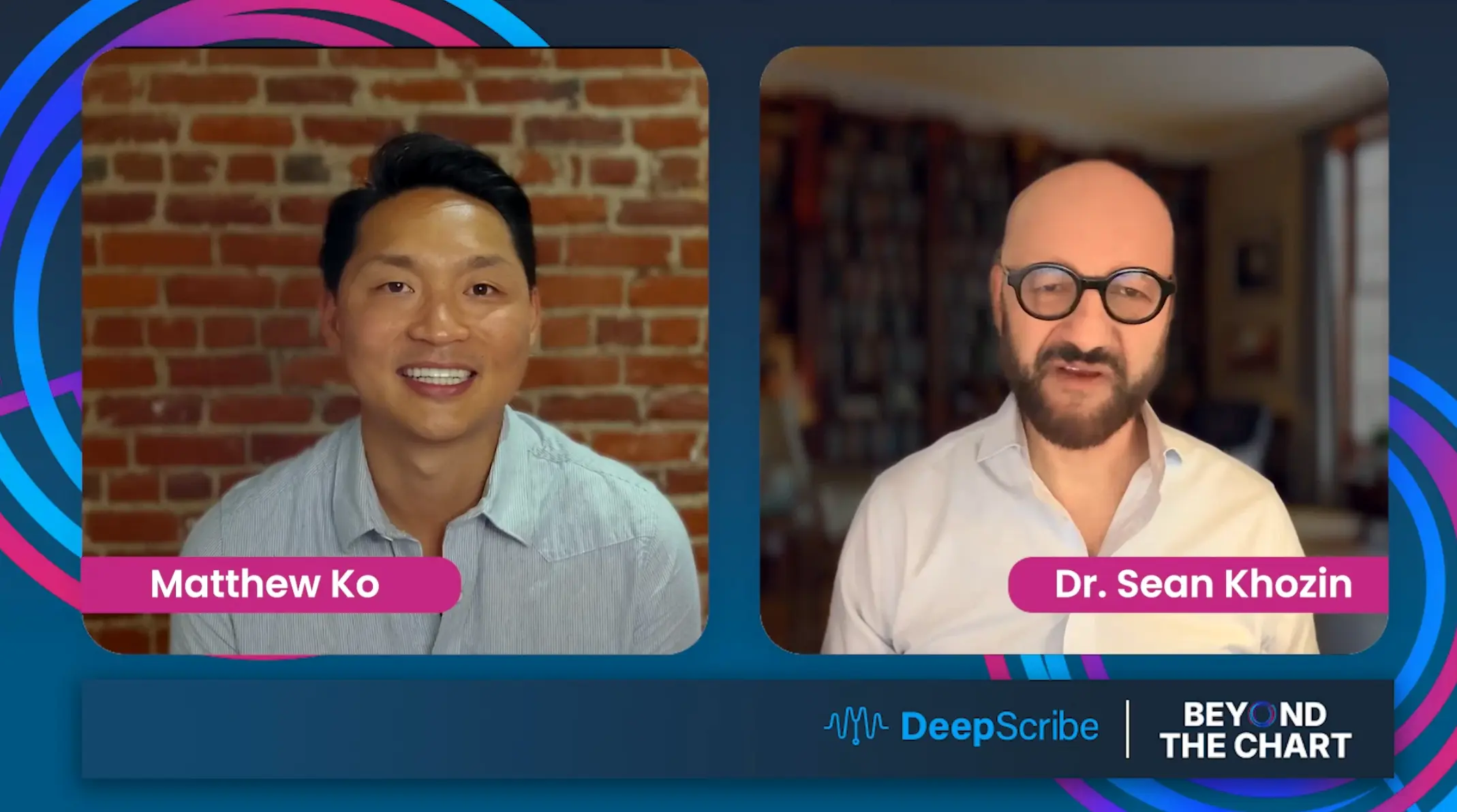From Medical Transcription Companies to Artificial Intelligence - A Journey Through Medical Technology
In the early days of medical dictation software, clinicians relied on their staff or a third party transcription service to double-check their notes. Medical transcription companies provided a final touch of validity to clinicians seeking medical transcription services. More recently, however, medical transcription software has become increasingly more accurate and as the technology has advanced, the need for third party non-automated transcription has dwindled.


From Medical Transcription Companies to Artificial Intelligence - A Journey Through Medical Technology
Medical transcription first began hundreds of years ago, when care providers would dictate their medical findings to a scribe or transcriptionist who would document the spoken word into text. In the past decade plus, it has become more and more common for these same transcriptionists to work for large medical transcription companies, who use secure provider dictation recordings to produce completed medical transcription. Today, artificial intelligence is beginning to outperform those transcription companies and their human transcriptionists, becoming one of the preferred methods for healthcare professionals looking to reduce their medical documentation load and the burden it creates.
Early Medical Transcriptionists
As mentioned above, a traditional medical transcriptionist relies on a dictation recording to produce an accurate medical document, and is often either self-employed, employed by a health organization or hospital, or employed by a small medical transcription agency.
These medical transcriptionists, while effective, are often overworked in their own right, and aren’t always a financially viable option for small or private practices. Over the last 10 years, in-house medical transcriptionists jobs have been gradually decreasing, with many healthcare organizations and private practices opting for on-demand medical transcription through a third-party medical transcription company that manages a network of certified transcriptionists.
Get the Free eBook: The Complete Guide to Medical Documentation Solutions
Medical Transcription Companies
Medical transcription companies vary greatly and provide different benefits at different costs. Traditionally, medical transcription companies require healthcare providers to submit polished dictation recordings with which trained transcriptionists produce completed medical documents. Over the last 10-plus years, more and more healthcare professionals, clinician, and physicians are choosing medical transcription companies over in-house transcriptionists and traditional medical scribes. But as the demand for transcription increases, the more medical transcription companies find themselves handicapped by domestic labor costs. As a result, many of these companies are beginning to outsource their transcription work overseas where labor costs are lower. This mass exodus of domestic medical transcription poses a host of interesting threats to individual physicians as well as the security and efficacy of medical documentation in general.

Security
Transmitting sensitive patient information across international channels poses significant data leak risks, and while almost all medical transcription companies claim to be HIPAA compliant, data security rules overseas are less strict and inherently less enforceable. And while transcription companies are required to provide healthcare organizations with information regarding their data security guidelines, it doesn’t make those care providers and organizations immune to the fallout of a data leak. In 2020, a New Jersey ruling held a healthcare organization responsible for a data leak that affected over 1,500 patients, citing the organizations failure to perform an adequate risk assessment. While HIPAA typically holds data “holders” responsible for a leak, the waters are exponentially more murky when dealing with transcription companies overseas.
Efficiency
Beyond data security, clinicians must also consider efficiency. Medical note turnaround time — the time from sending the audio file and receiving the complete medical document — varies depending on how many other dictations the medical transcription company has in their queue. Providers may have to wait multiple days before receiving their transcribed records, or pay a fee for expedited delivery. This poses a direct threat to clinicians and their patients, as transcribed notes, completed medical documents, and insurance billing are vital for both continuing care and business.
But, healthcare professionals are becoming privy to these risks and drawbacks, and some researchers suggest that as technology develops the demand for medical transcriptionists will continue to shrink.

The Future of Medical Transcription
Finding the right medical transcription company or medical documentation solution — at the right price — may be an outdated and unnecessary practice for healthcare organizations as technology advances. With the rise of artificial intelligence, machine learning, and natural language processing, healthcare providers are now looking for more efficient, accurate, and innovative ways to combat the burden of medical documentation. Introduce AI-powered medical scribes. This sort of groundbreaking device listens to the natural patient conversation and extracts the medically relevant information from. Next, it automatically takes that information, and produces a completed medical document that can integrate with many of the popular EHRs. These AI scribes can assist with documentation, reduce your risk of malpractice litigation, and give clinicians some much needed time for relaxation. Rather than replacing one administrative task (typing notes) with another administrative task (editing, summarizing, and dictating), these all-encompassing AI scribe solutions are able to totally automate the entire documentation process.
Rather than simply attacking one arm of the problem like some of it’s solution-based predecessors, AI-scribe technology is solving the entire medical documentation problem and allowing providers to care for patients like they did in the days before EHRs.
Let’s bring the joy of care back to medicine.
Learn more about our AI-scribe technology here.
text
Related Stories
Realize the full potential of Healthcare AI with DeepScribe
Explore how DeepScribe’s customizable ambient AI platform can help you save time, improve patient care, and maximize revenue.




